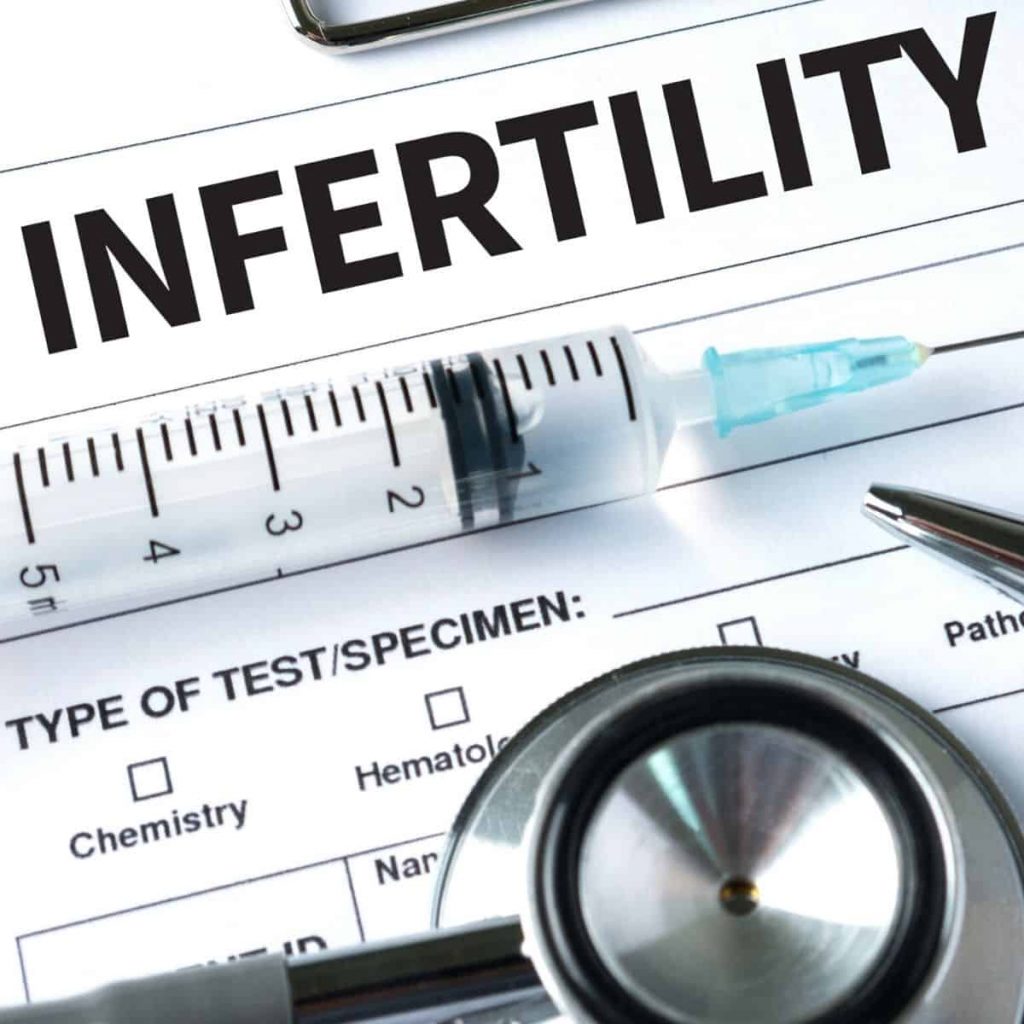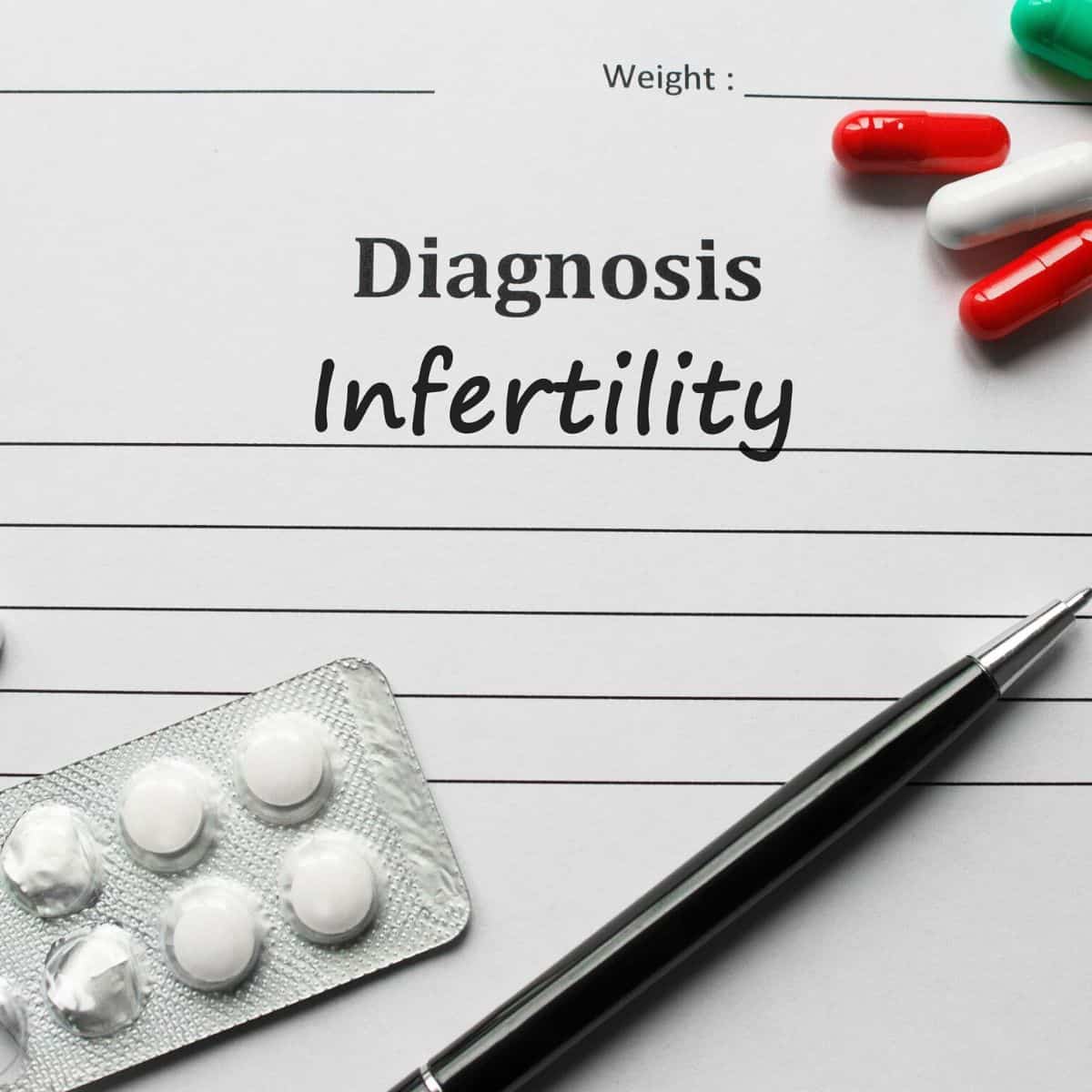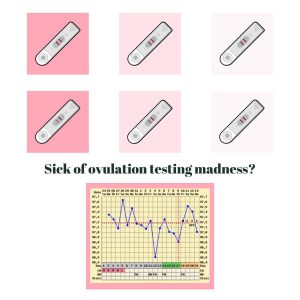Infertility is a heartbreaking experience for a couple, and it’s usually very unexpected. When you experience infertility, suddenly the future becomes very uncertain. In this article, we’ll answer common questions about infertility, beginning with the most fundamental one: “what is infertility”?
By having a stronger understanding of the meaning of infertility, along with what it looks like to struggle through infertility, you can know what to expect along your journey.
You can also find hope in the fact that there are many treatment options out there for infertile couples, along with many success stories.
Let’s explore all the basics you need to know about infertility, including:
- The meaning of infertility, both in definition, and as lived experience
- Symptoms
- Causes
- Common treatment options
- Resources for dealing with the infertility struggle

This site contains affiliate links, meaning that we earn a small commission for purchases made through our site. We only recommend products we personally use, love, or have thoroughly vetted.
The “Surprise” of Infertility
So many women spend much of their lives on birth control, being warned of how easy it is to get pregnant. “Just one accident is all it takes,” we’re told.
And of course, that can be true, so we’re NOT suggesting you throw caution to the wind.
But because of this experience, many young couples think that once they stop using birth control, they will get pregnant within a few months of trying.
However, in the United States, 10% to 15% of those who try to conceive are not able to get pregnant.
Despite many couples’ best efforts–having frequent, unprotected sex, following all the tips for trying to conceive, choosing the best ways to track ovulation–they find it shockingly hard to become pregnant.
Definition of Infertility
Infertility can be the reason why some couples are not able to reproduce naturally.
The word fertility refers to a couple’s natural ability to conceive a baby.
The definition of infertility, according to the Mayo Clinic, is “trying to get pregnant (with frequent intercourse) for at least a year with no success.”
By definition, infertility means not being able to conceive, which sounds relatively straightforward.
But the lived experience of it is distinctly different. The definitions make it sound so simple, so stark. But living with infertility can be a heartbreaking experience that makes many women question their bodies.
It’s a really tough emotional struggle for couples everywhere, and if you’re going through this, please know that you’re not alone.
An estimated 10-18% of couples in the U.S. struggle with infertility.

Types of Infertility
Most people think that only people who don’t have children experience fertility problems, but that’s not actually true.
To truly understand “what is infertility,” it’s important to know that there are different types of infertility. Even women who have been pregnant before can experience infertility.
Primary Infertility
When a woman has no living children and cannot get pregnant (conceive), this is called primary infertility.
Primary infertility, as an umbrella term, usually encompasses women who can get pregnant but have had recurrent miscarriage or stillbirths.
This is a bit tricky because many people in the infertility community don’t consider someone who can conceive a baby but miscarries to be infertile. And many miscarriage moms don’t consider themselves to be infertile.
But according to the best terminology we have, primary infertility is anyone who is struggling to have a baby after one year of trying when they don’t already have living children.
Secondary Infertility
Many women experience infertility even after birthing a healthy child. This is called secondary infertility.
Secondary infertility is when a woman is unable to get pregnant or carry a baby to term, despite having previously given birth to a living child.
And while it’s easy to dismiss someone’s grief because they already have living child, secondary infertility can be just as life altering and heartbreaking as primary infertility.
Male Infertility
A common misconception about infertility is that it’s caused by a physiological or hormonal problem in the female partner. And while this can be true, it certainly is not always the case.
The cause of infertility could lie in factors involving either partner. When infertility is connected to a physiological problem with the male partner, it is called male infertility.
Most people don’t know that male infertility is just as common as female infertility.
This is important for a few reasons.
First, couples struggling through an infertility journey need to understand the importance of having both partners tested for fertility issues. Male fertility testing is widedly available and necessary for couples experiencing either primary or secondary infertility.
Checking the male partner for issues like healthy sperm production and vas deferens functionality is equally as important as checking as checking the female partner for issues like hormone levels and uterine fibroids.
Second, while women regularly struggle with the emotional toll of infertility, it can also take a serious emotional toll on men.
If more men knew how common male-factor infertility really is, they might feel less guilt and isolation upon finding out that they are struggling with infertility.
Unexplained Infertility
In some cases, there are issues with both partners, or no cause can be determined. This is referred to as unexplained infertility.
Receiving a “diagnosis” of “unexplained infertility” can be maddening when all you want is answers.
So if you’re helping someone who’s dealing with infertility, know that unexplained infertility can be extremely overwhelming and upsetting.
But even with unexplained infertility, there are many safe and highly effective treatment options that can significantly improve your chances of getting pregnant and carrying a baby to term.
We’ll talk about those in a bit.
First, let’s review the signs to look for, which can be an indicator of infertility in women and men.

Reasons Infertility Happens
When experiencing the pain of infertility, many couples wonder why it has to happen to them. The most important thing to keep in mind is that you did NOT deserve an infertility diagnosis.
No amount of partying in your twenties; proclamations that you’d NEVER want kids; or any other behavior is a reason for infertility. You and your partner (if you are choosing to parent with someone) did NOTHING to bring about this diagnosis.
Infertility is simply a physiological response to conception–something is not working quite according to plan, and it needs to be fixed.
So how do you know if your body is showing signs of infertility?
Signs of Female Infertility
According to the Mayo Clinic, the main symptom of infertility is not being able to get pregnant after a year of frequent, unprotected sex. But the frustrating part is that besides a menstrual cycle that is either too long (35 days or longer) or too short (21 days or less), there may be no other outward signs or symptoms of infertility.
Some women do have symptoms, however, and these can include:
- Pain during intercourse
- Diagnoses of endometriosis, pelvic inflammatory disease, Polycystic ovary syndrome (PCOS), cancer, premature menopause, or damage to reproductive organs
- Hormone changes, which can be indicated by unexplained weight gain, severe acne, female facial hair, thinning hair, and cold hands & feet
- Obesity
- Multiple miscarriages
Signs of Infertility in Men
The Center for Disease Control (CDC) states that men may encounter infertility if they have the following conditions:
- A low sperm count or other sperm issues
- Testicular dysfunction
- Unhealthy habits, such as overuse of alcohol, cigarettes, or steroids
- Issues with ejaculation, which may indicate retrograde ejaculation
- Erectile dysfunction
- Hormonal disorders
- Genetic disorders
Causes of Infertility for Women and Men
Many issues can cause couples to experience infertility. Your medical team can help you think through possible causes and order a series of tests to find the culprit(s).
Causes of Female Infertility
The Mayo Clinic suggests that causes of female infertility can include:
- Ovulation disorders
- Uterine or cervical abnormalities
- Fallopian tube damage or blockage
- Endometriosis
- Primary Ovarian Insufficiency (read Laura’s Primary Insufficiency Story for a personal perspective on POI)
- Certain cancers – and radiation or chemotherapy to treat cancer – can also impair fertility
- Women who are obese or go through early menopause can also have problems getting pregnant
Causes of Male Infertility
Male infertility factors are quite different from female ones.
Male infertility can often be linked to:
- Abnormal sperm stemming from a genetic defect
- Diabetes and other chronic health problems
- Injuries
- Sexually transmitted diseases (STDs)
- Overexposure to environmental factors like chemicals, pesticides, or radiation.
Lifestyle factors such as smoking, taking anabolic steroids, or medications to treat bacterial infections, high blood pressure, and depression also can impact male fertility.
How to Get Your Infertility Diagnosed
If you’ve been trying to get pregnant with no success after one year, or if you’re over age 35 or older and have been trying for at least six months, then it may be time to see your OB/GYN or a fertility specialist.
Read more about understanding your fertility by age.
Your OB/GYN or fertility specialist should be your first stop to getting your infertility diagnosed and making a treatment plan.
Find a provider you are comfortable with and who will listen to your questions and concerns. You do NOT want to go through the journey of infertility not feeling seen and heard.
Once you have established this relationship, and your doctor concurs that you might be suffering from infertility, he or she will conduct testing on you and your partner to determine what may be preventing pregnancy.
Depending on the underlying problem, many fertility issues can be treated with medication, hormone treatments, or surgery.

Can Infertility be Cured? Infertility Treatments to Consider
There are many infertility treatments available. After all, it’s 2021, and modern health care and science are on your side.
Infertility can be treated through assisted reproductive technology (ART) methods that have high pregnancy success rates.
The CDC explains that ART procedures sometimes use donor eggs, donor sperm, or previously frozen embryos. ART can also involve using a surrogate or gestational carrier if the woman is unable to carry a baby on her own.
If you are struggling with infertility, know that most issues that prevent couples from having a baby are treatable.
If you are dealing with a condition that is not treatable, you may consider using assisted reproductive technology (ART).
These treatments include:
1. Intrauterine Insemination
According to the Mayo Clinic, IUI is a type of artificial insemination where “sperm that have been washed and concentrated are placed directly in your uterus around the time your ovary releases one or more eggs to be fertilized.”
2. In vitro fertilization (IVF)
This is a procedure where mature gees are collected and fertilized by sperm in a lab. Then, the embryo is placed in the uterus. It is also considered by the Mayo clinic to be the most effective form of assisted reproductive technology.
3. Gamete intrafallopian transfer (GIFT) and Zygote intrafallopian transfer (ZIFT)
These are modified and faster versions of IVF. With GIFT, both sperm and eggs are mixed together and immediately inserted in the uterus. With ZIFT, a fertilized egg (zygote) is placed directly into the fallopian tube.
What to Do When You’ve Been Diagnosed: Resources for Dealing with Infertilty
There are many resources available to you if you’re suffering from infertility. In fact, our community has many articles to help you on your journey, including more in-depth articles about fertility treatments:
- Laura’s primary ovarian insufficiency story
- What it’s like using donor eggs
- What is embryo adoption
- Carly’s cancelled IVF cycle
- How to comfort a friend who can’t get pregnant
- What to say to someone struggling with infertility
- In-person and online infertility support groups
- What to expect from an infertility workup
- Your guide to foods to eat for fertility
- Which infertility treatment options are best for women and men?
- What does infertility testing for females look like?
- Understanding the connection between stress and infertility
- Get a better understanding of secondary infertility
Are you struggling to understand “what is infertility” and what your treatment options are? Tell us your story in the comments.










